You worked with a plethora of artists over the years, but also as a one-man project. What collaborations were/are the most interesting and important to you and why? Is it better to create music alone or together with someone?
Undoubtedly my most fruitful collaborations were with those musicians who were (and have always been) part of the Neofolk genre. My partnership with Timothy Jenn in Strength Through Joy led to us working and touring with Death in June and those years were foundational.
Marco Deplano from Foresta di Ferro is another key collaborator with whom a lasting friendship was forged. Even though we are living on different continents, we see the world mostly through the same lens.
I also enjoyed meeting and working with Ian Read from Fire and Ice who brought a wealth of knowledge and conversation that in some ways was even more important than the music.
I have also had bad experiences working with “outsiders” whose technical abilities did not compensate for a lack of spiritual empathy. As a result, I found that working alone is better for the integrity of the music and creating a central axis out of which to reach out to others. Having found the confidence to do that, I now feel that I could work with others again but only on my own terms.
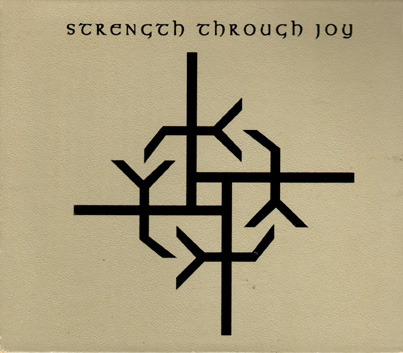
Can you tell me, in short, the main ideas behind your music? Could you name your favorite your compositions / albums / collaborations?
There are many ideas that influence and motivate me. A sense of music as a spiritual medium and a form of expression for deeper truths is one. It has never been purely a source of entertainment. I want to be taken somewhere and see a reflection of the world, not escape from the world into some kind of fantasy. The fantastic is inseparable from the real in my view. I am strongly aware of the power of symbolism and imagery but I also don’t want the music to hide or be veiled behind them. The invisible power of music is what conveys the visible force of the image or symbol. Lyrics and melody complement each other completely and utterly.
My favourite composers are Wagner, Sati, Scott Walker, Leonard Cohen, Kate Bush, Jim Morrison and Arthur Lee to name a few.
Favourite collaborations have been with Death in June and Brown Book will always be in my top 5 along with Love’s Forever Changes, Joy Division’s Closer, Nick Drake’s Pink Moon and Current 93’s Thunder Perfect Mind.

What about the new album? It is said in your page that it is a slightly different album. Why its concept is about Napoleon?
It’s perhaps my “coming of age” album in that it embodies so many of the thoughts and intentions I have had for a while. The production is bigger, the self-discipline stronger and the mood much more tuned to the Zeitgeist and to my long-standing obsession with history and myth. Napoleon is a very ambiguous figure, the first modern ruler but with a nostalgic sense of the past. He saw himself following in the footsteps of Charlemagne, Caesar and Alexander and thus he is a nexus between the ancient, medieval and modern epochs. His arrogance and ultimate defeat makes him both tragic and heroic. The fact that Beethoven dedicated a symphony to him and then withdrew that dedication is a very poignant reminder of the tension that exists between art and politics, power and truth, aesthetics and violence, culture and civilisation. This is precisely where this album is grounded in terms of the themes it explores: the unpredictability of history, fanaticism, martyrdom, narcissism and the failures of faith.
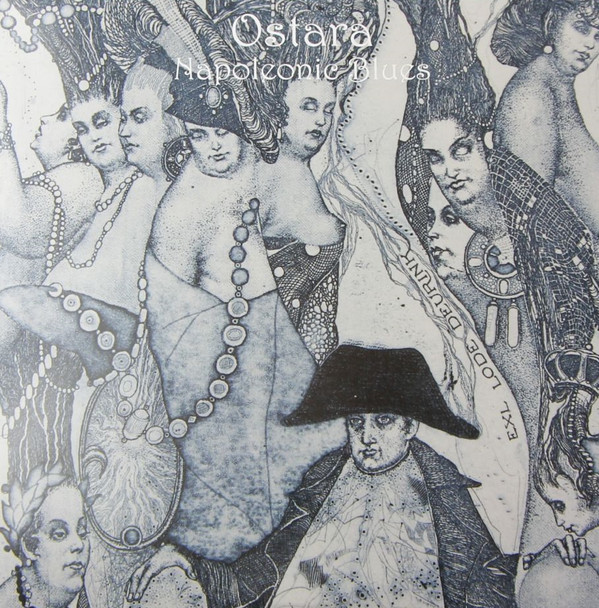
What is and what is not a sound Art?
Beauty can apparently be in the eye of the beholder, although there are certain constants that determine what beauty is. For me, it is an absolute and art is impossible without it. There is ugly art that expresses a hidden beauty (Duchamp for example) but there is a lot of ugly or superficially pretty art that is inherently empty. I gravitate to the romantic and symbolic but also need to feel something visceral, even in the most ethereal forms. Art is spiritual but the effect must be physical in the sense that it has to be felt deep in the heart. It literally has to get under the skin and into the bones. If it’s too cerebral and abstract, it loses feeling. If it’s too simplistic and gratuitous, it can lack intelligence.
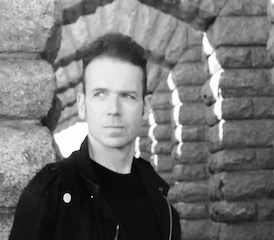
What do you think about relations between "the old art" (analogue) and digital, computer art? Are they compatible?
There is some great digital art but it can never compare with the classical method of rendering an image through the refined skill of a painter’s brush or a sculptor’s hand. In that harmony of eye and limb lies the passion to create inimitable work. Computers and CGI are incredible tools but they actually only replicate the kind of textures, shades and hues that the human mind conceives in the world and in the reflective imagination. It is a combination of the photographic, the plastic and the pictographic, all of which are related to the mind and, at a deeper level, the soul of the creator. Digital is based on the physical, just as it is based musically on the acoustic. In that way, it takes something from its roots but never entirely replicates the original completely. Electronic music is a separate category in that it has an ambience of its own but I personally prefer a real orchestra or string instrument, live percussion and natural voices. I like nothing less than a performance behind a laptop. Digital has unlimited capability but limited compatibility because there will never be a digital Franz von Stuck, Gaudi, Rodin or Debussy. I prefer Bjork when she sounds more traditionally Icelandic. Even the recent Star Wars films had to return to the old cinematic methods to try and recapture something of the first three classics. In animation, Myazaki’s hand-drawn films are much more original and inspiring than anything Pixar can create, both in terms of story and technique. The machine is a miracle but the human mind is even more miraculous. It needs to stay true to its earthly origins because that is where the otherworldly exists. They are inseparable.
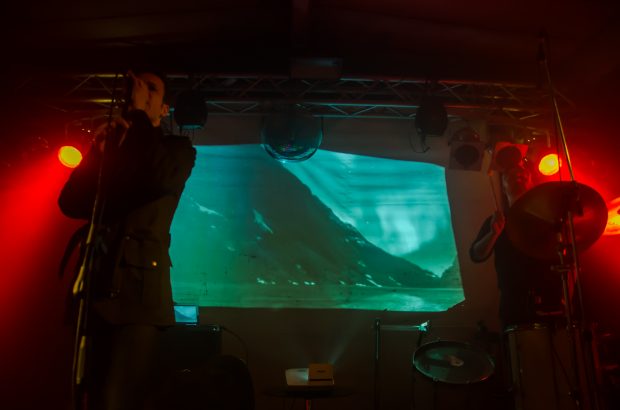
What do you think about thousands of neofolk/industrial/ambient/tri bal/electroacoustic/avantguard e etc. bands/projects? Is it a kind of trend, or just a tendency forwards better music?
Every scene has a lot of players, especially in an age when everyone can create and showcase their work online. In the end, only the best prevails, sometimes only posthumously, while the mediocre ultimately perishes. There is a lot of popular mediocrity and obscure genius – and that’s the tragedy. Authenticity is rare and when combined with greatness, rarer still. There will always be weeds among the roses.
What do you know about Lithuania? What Lithuanian and foreign musicians do you value most?
I am three quarters Lithuanian-Jewish. My grandparents on my mother’s side and one on my father’s made the long journey after the First World War from Russian dominated Lithuania to South Africa. Lithuania is in my blood and I have delved into the history of the Polish-Lithuanian empire and also the Romuva myths. This has always been just part of my wider interest in Occidental and Near Eastern culture but I do intend to visit the country in the future and it would be great to do a show there.
Would you play (or maybe You did) with a rock, industrial or punk rock band?
I liked punk and metal as a teenager and recorded a couple of albums with a rock direction but it never felt natural to me. I still enjoy some industrial and metal but prefer a folk sound for Ostara, even though there is a spiritual bridge between these genres in many respects. I could easily listen to Ulver and Of the Wand and the Moon in the same hour.
What inspires you most?
The metaphysical provocation of life.
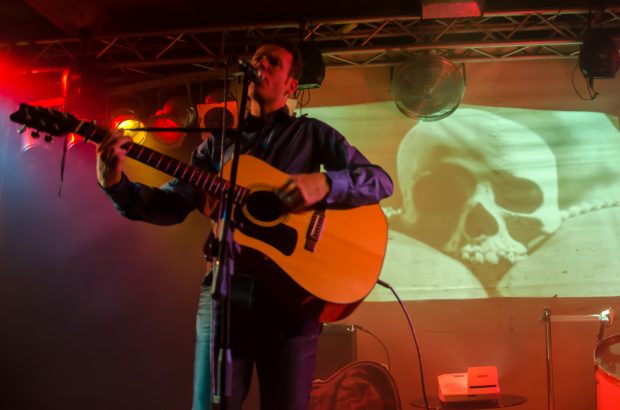
What does your band name mean to you?
Ostara is the symbol of the spring but also the wild, volatile and dangerous elements within it, full of burgeoning beauty and dark foreboding. It is the delicate and the harsh, the refined and the cruel, the whisper of the wind and the latent roar of the storm. Every spring contains the icy seed of the winter.
Thank You.
Useful links: